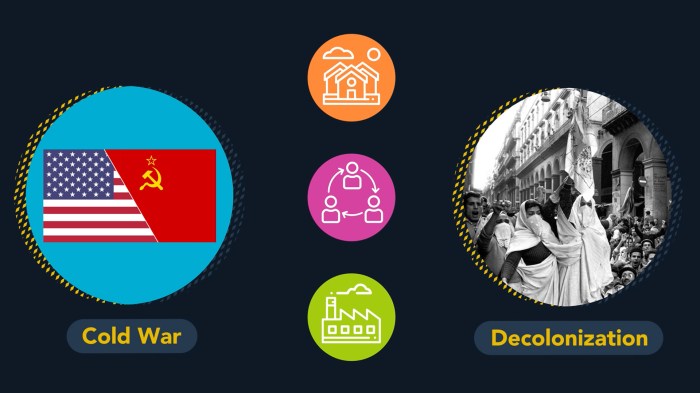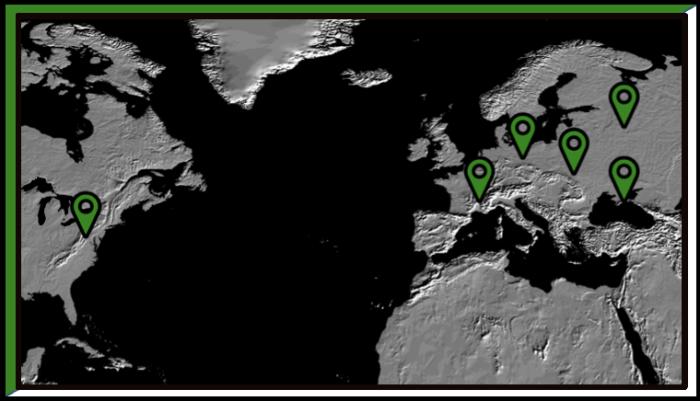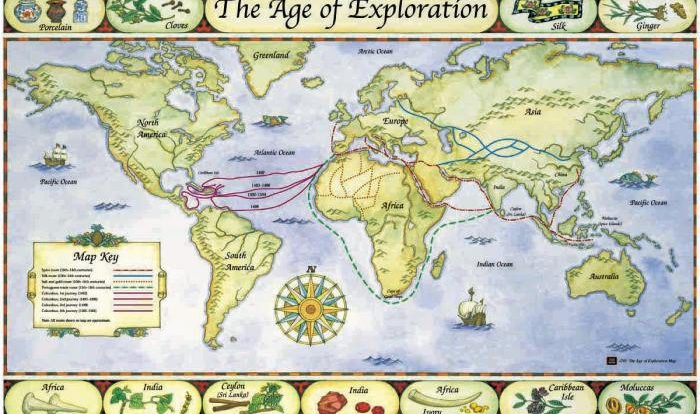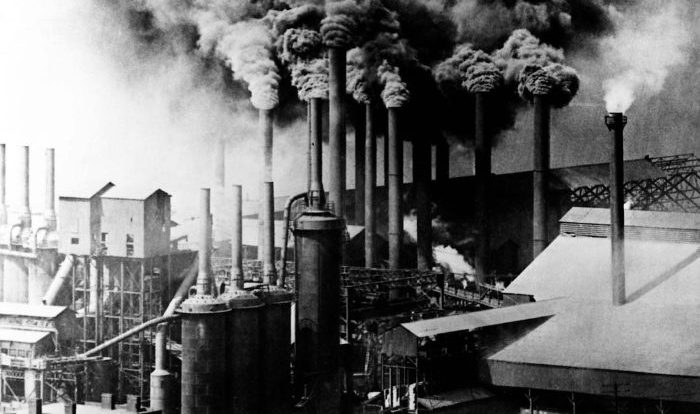Unit 8: cold war and decolonization study guide answers – Delve into the intricacies of Unit 8: Cold War and Decolonization with our comprehensive study guide answers. This guide unravels the complexities of these pivotal historical events, providing a thorough understanding of their origins, conflicts, and enduring legacies.
From the ideological clashes of the Cold War to the transformative struggles for independence in Africa and Asia, this study guide illuminates the profound impact these events have had on shaping our contemporary world.
The Cold War and Decolonization: Unit 8: Cold War And Decolonization Study Guide Answers
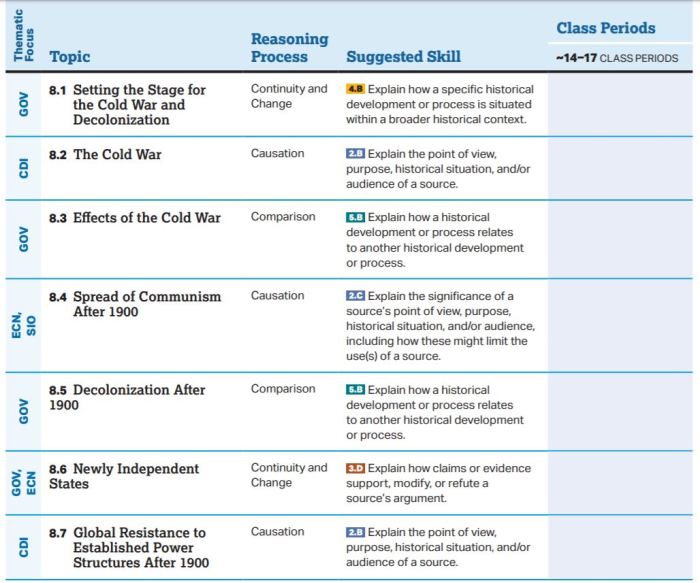
The Cold War, a period of intense political and military tension between the United States and the Soviet Union, had a profound impact on global politics and society. It began after World War II and lasted until the collapse of the Soviet Union in 1991.
The origins of the Cold War lie in the ideological differences between the United States and the Soviet Union. The United States, a capitalist democracy, feared the spread of communism, while the Soviet Union, a communist state, sought to expand its sphere of influence.
The Cold War was characterized by a series of major events and conflicts, including the Berlin Blockade, the Korean War, the Vietnam War, and the Cuban Missile Crisis.
The Cold War had a significant impact on global politics. It led to the formation of military alliances such as NATO and the Warsaw Pact, and it fueled a global arms race.
The Cold War also had a profound impact on society. It led to the rise of McCarthyism in the United States and the suppression of dissent in the Soviet Union.
Decolonization in Africa
Decolonization in Africa refers to the process by which African countries gained independence from European colonial powers after World War II.
A number of factors contributed to decolonization in Africa, including the rise of African nationalism, the weakening of European colonial powers, and the pressure from the United States and the Soviet Union.
Decolonization in Africa was a complex and often violent process. Some countries, such as Ghana and Kenya, gained independence relatively peacefully, while others, such as Algeria and Angola, experienced protracted and bloody wars of independence.
After independence, African nations faced a number of challenges, including poverty, corruption, and ethnic conflict.
Decolonization in Asia
Decolonization in Asia refers to the process by which Asian countries gained independence from European colonial powers after World War II.
A number of factors contributed to decolonization in Asia, including the rise of Asian nationalism, the weakening of European colonial powers, and the pressure from the United States and the Soviet Union.
Decolonization in Asia was a complex and often violent process. Some countries, such as India and Indonesia, gained independence relatively peacefully, while others, such as Vietnam and Cambodia, experienced protracted and bloody wars of independence.
After independence, Asian nations faced a number of challenges, including poverty, corruption, and ethnic conflict.
The Legacy of the Cold War and Decolonization, Unit 8: cold war and decolonization study guide answers
The Cold War and decolonization had a profound impact on the world. The Cold War led to the division of Europe and the creation of a nuclear arms race.
Decolonization led to the independence of dozens of new nations in Africa and Asia. These new nations have played an increasingly important role in global affairs.
The Cold War and decolonization have also left a legacy of conflict and instability in many parts of the world.
Popular Questions
What were the primary causes of the Cold War?
The Cold War emerged from a complex interplay of factors, including ideological differences between the United States and the Soviet Union, post-World War II geopolitical tensions, and the rise of nuclear weapons.
How did decolonization impact the global balance of power?
Decolonization led to the emergence of numerous newly independent nations, shifting the global balance of power and challenging the dominance of European colonial powers.
What were some of the key challenges faced by newly independent African and Asian nations?
Newly independent nations faced a multitude of challenges, including economic instability, political instability, ethnic conflicts, and the legacy of colonialism.
